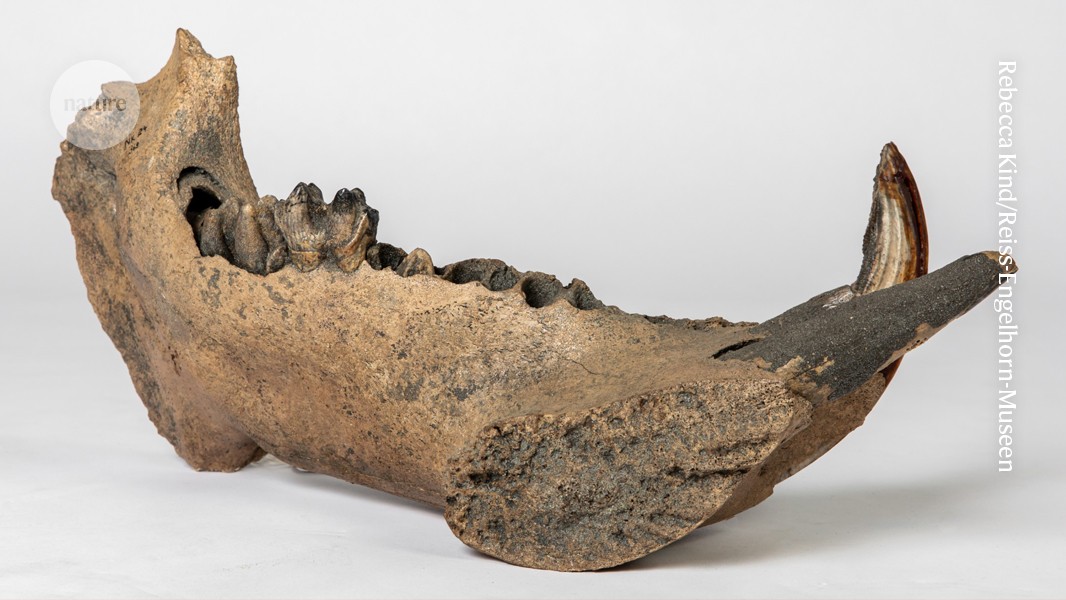
"DNA found in fossils from southwestern Germany suggests the populations survived in the region much longer than expected."
"Between 780,000 and 12,000 years ago, Europe's climate swung between freezing stretches and warmer periods that allowed hippopotamuses to migrate out of Africa into Europe, where they thrived as far north as Britain. Scientists have long thought that hippos disappeared from Central Europe by about 115,000 years ago, with the onset of the last ice age - but analyses of fossils from Germany now tell a different story."
DNA recovered from fossils in southwestern Germany shows hippopotamus populations survived in that region much longer than expected. Between 780,000 and 12,000 years ago Europe's climate oscillated between glacial and warmer intervals. Warmer periods allowed hippopotamuses to migrate out of Africa into Europe and expand as far north as Britain. Previous estimates placed hippo disappearance from Central Europe around 115,000 years ago with the onset of the last ice age. New genetic analyses of German fossils demonstrate persistence beyond that threshold, implying more complex survival and range-shift dynamics during Pleistocene climate fluctuations and extended regional refugia. The findings reshape understanding of species’ responses to Pleistocene climate variability and influence models of past biodiversity and habitat connectivity in Europe.
Read at Nature
Unable to calculate read time
Collection
[
|
...
]